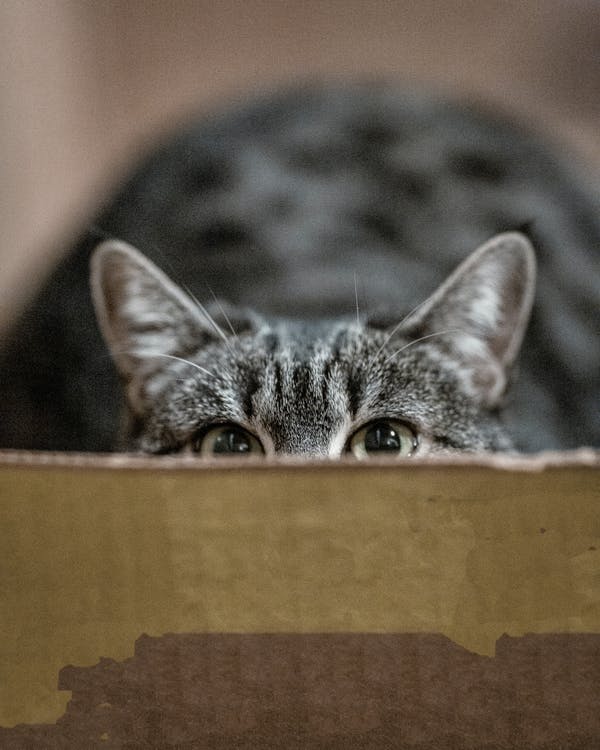Someone has aptly described what it’s like to be a cat parent with the following saying:
“Cats haven’t actually forgotten that they were worshipped in ancient times; they still have an appetite for it.”
Having a cat around as a pet definitely feels like there’s a diva in the house. You might love your furry friend with all your heart, but it won’t be wrong to say that her independent streak can trigger her feisty nature at times. This might feel cute and adorable at first but can be really frustrating and annoying after you start losing your belongings to her sharp paws. Therefore disciplining her is the only key to deal with your feline’s behavior problems.
But if you have no idea where to start, here are some tips for you to lay the groundwork so that you don’t frustrate yourself in training sessions and have a perfectly disciplined cat in the house. Let’s take a quick look!
Start encouraging good behavior
Just like humans, positive reinforcement is the best and preferred way to enable cats to inculcate better habits at home and also strengthens your bond with your pet. This means that you must always try to seize the opportunity to reward your kitten and motivate her to do better. You can consider praising her and offer healthy treats whenever she does something right.
Cats are attention-seekers. They love when they are appreciated and tend to repeat the good behavior in order to win some more positive reinforcement from their owners. But make sure that you don’t overdo it. The rewards must be given when your cat does something amazing so that she knows what she has to do to earn her treats. Who doesn’t love to feel a little appreciated, right?
NEVER punish your kitty
Sometimes cat parents lose their temper and end up punishing their pet. But that’s not how they’ll learn. Spanking or using spray bottles on your cat for doing something naughty might induce feelings of aggression, fear, and stress in your furry friend and ruin your bond with your pet. Therefore, according to the experts, physical punishment is not the answer to deal with the behavior problems in your kitten. In fact, studies show that cats who are often yelled at and punished tend to suffer from severe depression and anxiety attacks.
At times you might want to yell at your pet to make your point, but that’s also not the right approach. You already don’t speak the same language, and raising your voice is only making your cat feel stressed and anxious.
So, the best way to try stopping your cat from doing what you don’t want is to simply redirect her attention to something that interests her more. For instance, if you don’t want her to spoil your brand new couch with her claws, get her a toy that she can scratch and play with all day.
Offer excellent and quality food
You’ll be surprised to know that food plays a major role in her physical as well as mental development. You might all be familiar with the physical benefits of offering good quality food to your feline, but how about we tell you that it can also affect her mood and behavior.
Many cat parents feed their cats when they are howling or purring. This gives her an idea that in order to meet her feeding needs, she has to annoy her owners. And that’s not healthy. To avoid this, first of all, you need to have a fixed and healthy feeding regimen. Unless your vet suggests following a free-feeding approach, it is better to come up with a schedule so that your cat knows when she is supposed to be fed.
Secondly, according to a prominent veterinarian, half of your cat’s behavior problems would be solved if you offer her nutritious and quality food. This is because a poorly balanced diet can make your pet uncomfortable and can cause severe health issues, such as pain, stress, irritable and urinary conditions. Thus, the professionals at Akela cat food in their feeding guide suggest that the food you offer your pets should be chosen, keeping a close check on their daily needs, age, breeds, and temperament.
Keep a positive distance
Having a furry friend around doesn’t mean to kiss and cuddle all the time. This is best when it comes to dogs, but cats love to enjoy their own private zone. Yes, that’s right! Cats love to be left alone so that they can enjoy some “me-time.” Overly affectionate cat parents tend to have a hard time dealing with their pet’s tantrums.
For instance, you might assume that if your kitty is turning her stomach upside down, she might need a good belly rub. But that’s not always the case. According to the vets, displaying the belly is a defensive cat move to tell their potential enemies that their limbs are all set for the attack. Or the reason they might be doing this is that they simply want to stretch. So, if you are a cat parent, try giving her some space by keeping your affections in control if you don’t want to get scratched and listen to that hissing, angry voice of your pet.
Don’t bother her with that camera flash
Have you ever noticed that whenever you click your cat’s picture, there is a spooky glare that screams, “Hey! Knock it off?” You might want your cat to become an Instagram model, but constantly clicking pictures can annoy and frustrate her. And this causes your cat to do something naughty every time she finds you clicking her picture.
So, if you don’t want your fur baby to deliver some diva tantrums, try not to bother her with camera flashes. Instead, you can compensate for it by letting her play with her favorite toys.
Wrapping Up!
Sharing your life and home with a pet can be magical and brings many responsibilities along. Hopefully, the tips outlined above could help you cope with your kitty’s behavior problems and strengthen your human-animal bond.

